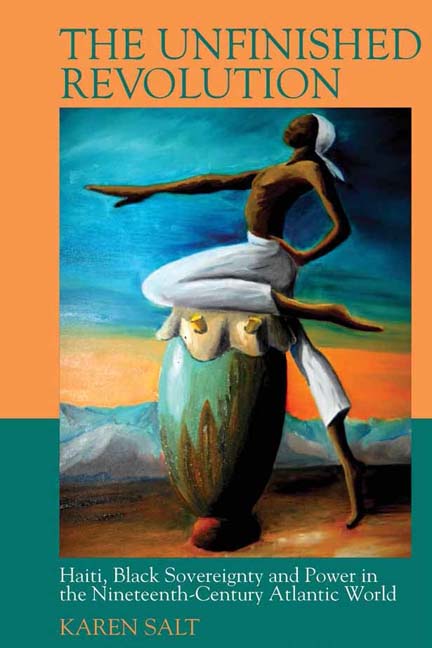 The Unfinished Revolution
The Unfinished Revolution Introduction
This chapter reads the web of meanings that surround labouring bodies and the lands that contain them in particular places and at particular temporal moments in Haiti. Combining my background in transnational American, Caribbean and critical race studies and postcolonial governance allows me to weave hemispheric shifts, development rationales and racialised notions of difference together in order to chart the changing power dynamics and political implications that lend the land—and especially soil—legibility and translatability across national and racial lines. In tracing this arc, I read ecologies (and capital) through a racial lens, engaging in what literary critic and American studies scholar Rob Nixon describes as Caribbean environmental studies—an area he notes is a “particularly fertile domain of interdisciplinary enquiry.” The interdisciplinary nature of these inquiries informs much of the richness of this scholarship. As a way of engaging in research, interdisciplinarity is an essential tool for tracing how racialisms live through and within the land and transform articulations of place into hierarchies of possibility and control that can transform certain black bodies into commodities that can be substituted for power—especially sovereign power.
There is a way to unveil these shadowy practices: retrace the “disturbances” within and of the land. According to Caribbeanist and sociologist Mimi Sheller, “land has been one of the key sites of social struggle in postslavery societies.” She continues, noting that “social relations of power, resistance, and oppositional culture building are inscribed into living landscapes of farming, dwelling, and cultivation” that mark out or “proclaim use-rights, ownership, or the sacrality of particular places” onto regions, territories, and entities such as roads, trees, and even soil. Reading Sheller's comments through the lens of black sovereignty, then, it is possible to comprehend how black space(s) can become imbued with power and how certain black bodies negotiate a complex path within and through these networked sites. In essence, black spaces trouble black bodies and the performance(s) of black sovereignty in intriguing ways.
What I am proposing, though, is more than just a call for further investigations into Caribbean landscapes. According to Martinican poet, philosopher and cultural critic Édouard Glissant, “describing the landscape is not enough” to understand its dynamism and intricacy in human–nature relationships. For him, “the individual, the community, [and] the land are inextricable in the process of creating history. Landscape is a character in this process.”
To save this book to your Kindle, first ensure [email protected] is added to your Approved Personal Document E-mail List under your Personal Document Settings on the Manage Your Content and Devices page of your Amazon account. Then enter the ‘name’ part of your Kindle email address below. Find out more about saving to your Kindle.
Note you can select to save to either the @free.kindle.com or @kindle.com variations. ‘@free.kindle.com’ emails are free but can only be saved to your device when it is connected to wi-fi. ‘@kindle.com’ emails can be delivered even when you are not connected to wi-fi, but note that service fees apply.
Find out more about the Kindle Personal Document Service.
To save content items to your account, please confirm that you agree to abide by our usage policies. If this is the first time you use this feature, you will be asked to authorise Cambridge Core to connect with your account. Find out more about saving content to Dropbox.
To save content items to your account, please confirm that you agree to abide by our usage policies. If this is the first time you use this feature, you will be asked to authorise Cambridge Core to connect with your account. Find out more about saving content to Google Drive.